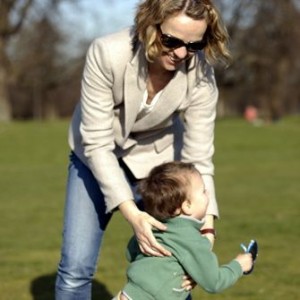 This week I talk Mrs B who is Estonian and had first son in Australia and her second in the UK as part of the series The Global Differences of Baby-Making. She talks about the differences and the similarities between Estonia, Australia and the UK. Here is her story:
This week I talk Mrs B who is Estonian and had first son in Australia and her second in the UK as part of the series The Global Differences of Baby-Making. She talks about the differences and the similarities between Estonia, Australia and the UK. Here is her story:
Tell me a bit about yourself? Where are you from? How old are your children and where did you have them?
I am from Estonia, but at the age of 17 I won a scholarship to study in the States for a year and my expat life started. Now 18 years later, I have lived in the US, Germany, Australia and since early 2006 in the UK (interestingly, this is the first time I’ve done the math and as a result realised that I have now been away from Estonia for longer than I lived there – time flies!).
I studied languages but have been working in web development for the past 10 years. At the moment I work 4 days a week in the city while my live-in mother looks after my two sons, my 6-year old who was born in Australia and my 2-year old who was born in the UK.
Why did you have your children abroad?
I had my first son in Australia because I had lived there for 5 years by then, had an Aussie husband, felt very comfortable with the system and travelling to Estonia for the birth was just not an option due to the distance.
My second son was born after we’d been living in London for 4 years. Knowing what a busy and overcrowded city it is, I did think about travelling to Estonia for more one-on-one attention pre- and post birth, but in the end I decided to stay here to make sure that my husband wouldn’t miss the birth.
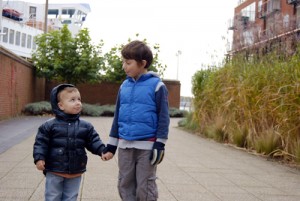
Mrs B's sons
What do you feel were the benefits to having children abroad?
Compared to Estonia, I’m glad that both countries that I’ve given birth in let me work until 2 weeks before the birth. In Estonia women go on maternity leave 70-30 days before the due date meaning they HAVE TO stay at home from 36 weeks. I would have been so bored and anxious sitting at home all that time, I think being busy and active as long as possible is much nicer.
I think that it’s also less stressful to have a baby in the country that you live in, that way you don’t have to travel with a young baby and there’s no stress of having to get a passport quickly to be able to go back “home”, etc.
As an expectant mother abroad how did you feel?
I consider myself lucky to have had my first child in Australia. Australians are very much into natural delivery and breastfeeding, and felt that I received a lot of very useful information and guidance throughout my pregnancy. Once I was in labour, the midwives were exceptionally encouraging and calming. I sent them both a huge bouquet of flowers afterwards, they made me feel very special.
After the birth they visited my room often to ensure that breastfeeding was going well, offering to help almost at every feeding. Also, I was very happy that I was able to stay in the hospital for 4 days and that by the time I went home, the feeding was going well.
Once I was at home, I visited the local baby clinic almost every week initially. It was a great environment to have a bit of one-on-one time with the nurse and get reassurance that everything was alright.
In England the situation was a bit different. Every step of the way I felt like I was on a conveyor belt, being rushed through every appointment. Thankfully I was having my second child so I didn’t mind too much because I was already equipped with a lot of information.
However, my second birth didn’t go very well at all. There is no point in blaming the country or the system, perhaps the planets just didn’t align that day. Even after the long and traumatic birth, the aftercare was minimal. That could have been because I had had my second one and maybe the opinion was that I didn’t need any support as I’d done it all before. I really missed being able to stay in the hospital for more than 24 hours, the personal aftercare appointments and the general natural/breastfeeding promoting/baby wearing attitudes of the Aussies.
Did you encounter any opinions that would have been different in your home country with regards to your pregnancy or parenting choices?
As mentioned already, Australia and Estonia are both very breastfeeding friendly. The UK doesn’t seem to be there yet and it really saddens me when a new mother is not guided enough to establish breastfeeding before she leaves the hospital.
My boys were both born with tongue ties so feeding them was a bit tricky in the beginning. Thankfully I had been taught a good method in Australia so by the time I got annoyed looks by the UK midwives for holding my second son in the “wrong position” I just told them to bugger off (as nicely as I could a day after giving birth 🙂 )
In regard to the tongue ties, in Estonia they would have probably be snipped at birth, just like they snipped my own when I was born. Neither in Australia nor in the UK though did they think that was necessary. I would have preferred for this minor surgery to be performed as soon as possible, I wasn’t keen to wait and see whether they’d have speech problems. I couldn’t find a willing surgeon to perform these simple snips in neither country though so the boys had their tongues fixed in Estonia during our visits. We waited perhaps a bit too long with the oldest as he did require speech therapy later on.
What advice would you give other mothers in your situation?
If giving birth in Australia, I would recommend going private – it does not cost very much if you have private health insurance (which almost everyone does have over there) and it ensures that you have your own room and can stay for up to 5 days. I would also recommend going to the antenatal classes, even if you’ve had kids before in other countries – the information they share there about you anatomy and the process of labour was excellent and very useful once in labour.
After birth, definitely visit the baby clinics and the new mother’s groups that are set up in your area. They are both very nice and reassuring environments to ask questions, get help if needed or just vent.
If giving birth in the UK, I would recommend choosing the opposite – the midwife led programme. I had chosen the obstetrician led program, simply because it seemed similar to the Australian system, but in the end it meant that the midwives changed very often (too often) during labour and since no one had seen me before I felt that they just rushed through their shift and treated me like a number.
If I ever have another child, I would choose the midwife option to establish a good relationship with the women who are going to help me labour. Although, I might have to go to a completely new country to give birth altogether in since so far every single member of our family has their very own and different birth country 🙂
Mrs B has blogged at www.crankymonkeys.com/blog since she became a mother, writing about the good and the bad – severe sleep deprivation, “sleep schools” in Australia, sunny Aussie life, moving to the UK, travelling, job hunting, settling into the life of a working mom, missed miscarriage, secondary infertility and post-natal depression and lately more and more positive stuff.
You can also find Mrs B on Twitter
******
Want to share your story? Get in touch: ameena@mummyinprovence.com
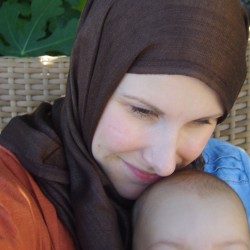 This week I talk to Suzie as part of the series The Global Differences of Baby-Making. She had her son in Turkey. Here is her story:
This week I talk to Suzie as part of the series The Global Differences of Baby-Making. She had her son in Turkey. Here is her story: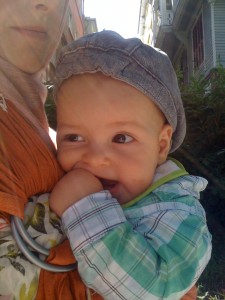 Did you encounter any opinions that would have been different in your home country with regards to your pregnancy or parenting choices?
Did you encounter any opinions that would have been different in your home country with regards to your pregnancy or parenting choices?
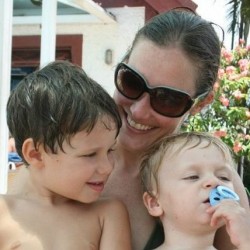 This week I talk to Rachel as part of the series
This week I talk to Rachel as part of the series 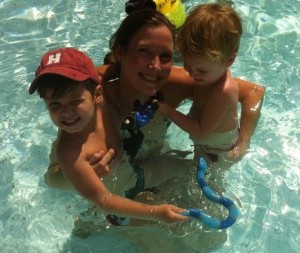 Did you encounter any opinions that would have been different in your home country with regards to your pregnancy or parenting choices?
Did you encounter any opinions that would have been different in your home country with regards to your pregnancy or parenting choices? This week I talk Mrs B who is Estonian and had first son in Australia and her second in the UK as part of the series
This week I talk Mrs B who is Estonian and had first son in Australia and her second in the UK as part of the series 
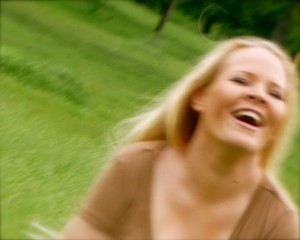 Tell me a bit about yourself? Where are you from? How old is your daughter and where did you have her? I’m a Finnish singer-songwriter and pianist, mommy of one magnificent daughter… and not so long ago, a performer in a chic Paris piano-bar located somewhere between the Ritz and the old Opèra. As my 8-month pregnant belly no longer fit behind the bar’s grand piano, and my squeezed lungs became unable to yell ‘Proud Mary’ at 4 A.M. without me passing out on the keys, I gave up my night job and retreated to my horrid apartment.
Tell me a bit about yourself? Where are you from? How old is your daughter and where did you have her? I’m a Finnish singer-songwriter and pianist, mommy of one magnificent daughter… and not so long ago, a performer in a chic Paris piano-bar located somewhere between the Ritz and the old Opèra. As my 8-month pregnant belly no longer fit behind the bar’s grand piano, and my squeezed lungs became unable to yell ‘Proud Mary’ at 4 A.M. without me passing out on the keys, I gave up my night job and retreated to my horrid apartment.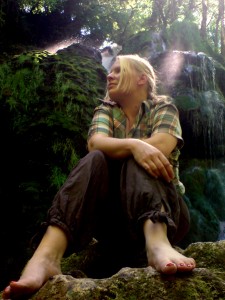

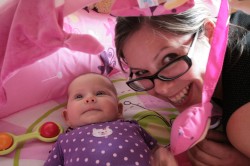 This week I talk to
This week I talk to 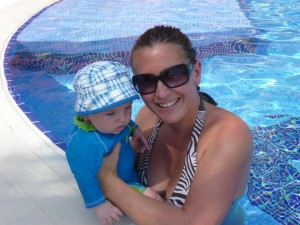 It’s back to the United Arab Emirates this week as part of the series
It’s back to the United Arab Emirates this week as part of the series 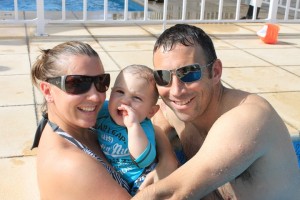
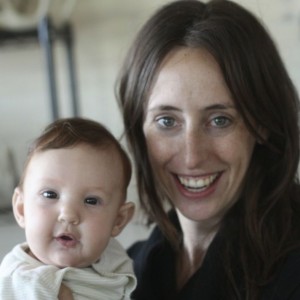 This week we go to Japan as part of the series of
This week we go to Japan as part of the series of 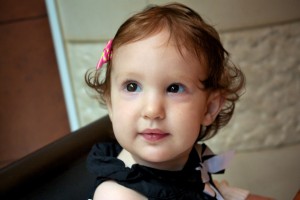
 I am back in France, once again as part of the series
I am back in France, once again as part of the series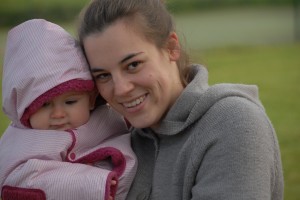
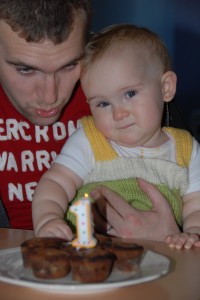 I (still) breastfeed my daughter more or less on demand. She co-slept for a long time, and still does sometimes, I don’t spank, I don’t have strict mealtimes, I don’t let my child cry it out, and I don’t read any ‘parenting’ books. I’d much rather follow my heart and my child’s lead. Parents like us in France are rare. I feel like in the US I would have been able to find a group of like minded parents with more ease.
I (still) breastfeed my daughter more or less on demand. She co-slept for a long time, and still does sometimes, I don’t spank, I don’t have strict mealtimes, I don’t let my child cry it out, and I don’t read any ‘parenting’ books. I’d much rather follow my heart and my child’s lead. Parents like us in France are rare. I feel like in the US I would have been able to find a group of like minded parents with more ease.